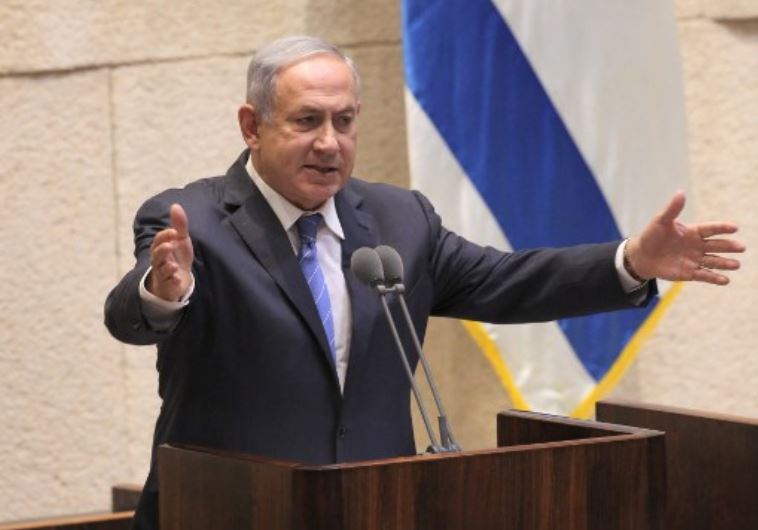Netanyahu: Violence will not put Israel's right to Jerusalem in doubt
PM, Herzog rail against UNESCO denying Jewish ties to Old City; politicians debate united or divided Jerusalem in Knesset.
 Prime Minister Benjamin Netanyahu addresses the Knesset in Jerusalem(photo credit: AFP PHOTO)Updated:
Prime Minister Benjamin Netanyahu addresses the Knesset in Jerusalem(photo credit: AFP PHOTO)Updated: